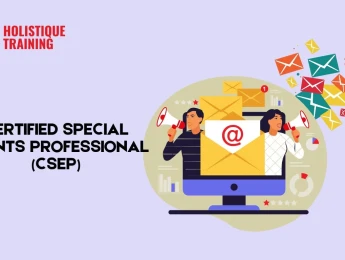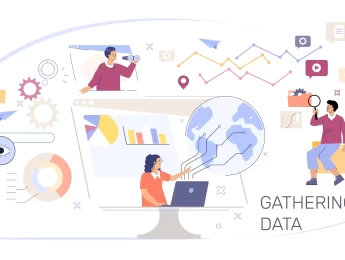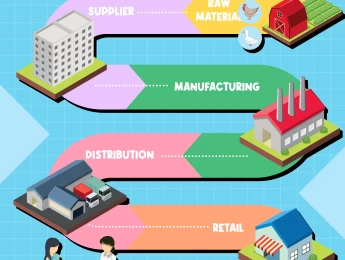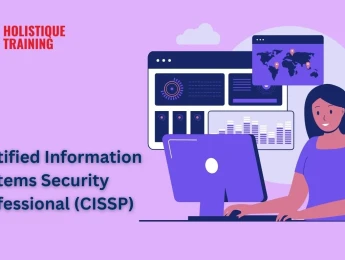Public relations play a crucial role in many businesses. With the advent of the internet, ensuring a consistent message that cannot be taken out of context is complex. When the media gets hold of stories, the validity and meaning can easily be twisted. It is a complex arena, and those working within public relations need to have the skills to handle media issues. PR concepts are constantly evolving, so you need to understand trends and strategies and how to apply them in a variety of contexts.
The course also looks at the skills needed when it comes to creating written and verbal communications, addressing the medic correctly in editorial and layout styling as well as understanding various production techniques. The speed at which communication can be expedited from a local release to global coverage must be understood, and you need to know how to harness media effectiveness for positive impact. As someone involved in public relations, you also need to develop internal communications and understand how to translate your knowledge to developing the strategic PR approach and, in turn, a plan of action for the organisation.
- Understand PR approaches
- Use the latest PR concepts to analyse and assess strategies
- Create programmes that offer effective and regular communication to build relationships
- Understand and develop Corporate Affairs Tools
- Use strategic anticipation to back this up
- Develop and work with stakeholder communication
- Monitor and measure behaviours and attitudes to best benefit your organisation.
- Be able to set corporate affairs effectively with context
- Be able to use this knowledge to develop focused activities with stakeholders
- Be confident in evaluating and using research
- Be skilled in the development and coordination of plans, tactics and strategies
- Be clear on PR skills including the layout, editorial aspects and production techniques for written and verbal communications
- Be confident in reputation management whether globally or locally
- Be able to apply media skills in public relations
This training would be especially beneficial for:
- Public Relations professionals/officers
- Other key personnel in the organisation whose work involves contact and interaction with internal/external sources
- Personnel managers
- Marketing executives
- Sales Managers
- Admin officers
- Anyone involved in media activities
- Also beneficial to personnel professionals who wish to learn how to use communication more effectively – possibly in the areas of personnel, marketing, sales, training and administration
Teaching takes place in a variety of settings including face to face in a classroom environment and will ensure that participants can expand their knowledge of the subject and increase their skill set. The course is delivered via various methods by a specialist tutor. This will include PowerPoint presentations, reviewing articles and other relevant materials, group or individual exercises and discussions. There may be some independent work set, and the course will involve a requirement to submit articles to demonstrate understanding and an end of course test. Note-taking is encouraged, and you are welcome to use electronic devices to do this.
The course manual will form part of the learning but give you references for the future. You are encouraged to ask questions and, if needed, spend time one to one with your tutor to go over any issues. During your time in the classroom, you will be able to network with peers in similar roles.
Day 5 of each course is reserved for a Q&A session, which may occur off-site. For 10-day courses, this also applies to day 10
1) PR - The Importance of Communication
- What is a PR strategy?
- When public relations should be used
- Definition, roles and situations for PR staff
- Qualities for successful PR staff
- Ethical Behaviour in public relations
- Corporate image brand identity and reputation
- Public and community activities
- Civic and Social Activities
- PR Role in Marketing
- External reputation management
- Leadership role in managing communications
2) Creating a Consistent Message and Brand
- Employees and employers - the expectations
- Understanding audiences: segmenting and prioritising
- The stakeholder communication journey planning
- Getting the message out to various audiences
- Planning a speech, including rehearsing, delivery, and questions
- How to embrace storytelling
- Editorial, layout and production techniques
- Written communications: emails, reports, social media
- Designing and preparing printed media
- Empowering employees through social media
- Steps for creating explicit content that has an impact
- Developing trust/credibility with senior leadership members
3) Risk/Threat Identification and Management
- Planning for the unexpected
- Using communication to manage risks to reputation
- Repairing a damaged reputation
- Preparing press kits and press releases
- Dealing with the media in crises
- Holding press conferences
- Identifying opinion formers and influencers
- Engaging with key decision-makers
- Principles for building sustainable relationships with decision-makers and influencers
- VIP and political contact programmes
- Monitoring political activities
4) Public Relations and Event Planning
- Media Relations best practices
- Effective event management
- PR and advertising
- Sponsorship and promotions
- Organising exhibitions
- Adequate media coverage of events
- Developing a crisis management toolkit
- Dealing with/building good relationships with the media
- Hosting VIP visits
- Conducting live or taped Interviews
- Putting protocols into practice
- Financial PR activities and roles
- Multinational and global communication challenges
5) The Most Powerful Planning Techniques
- Ten stages of PR planning
- Using market research to plan PR activities
- The PR Officer role
- Exchanging messages
- Models of good communication processes
- Overcoming communication barriers
- Importance of body language in public relations
- Developing measurable objectives for activities
- Identifying core messages
- Developing a practical communication toolkit
- Creating a timetable of PR activities
- Measuring PR outputs, outcomes and value
Upon successful completion of this training course, delegates will be awarded a Holistique Training Certificate of Completion. For those who attend and complete the online training course, a Holistique Training e-Certificate will be provided.
Holistique Training Certificates are accredited by the British Assessment Council (BAC) and The CPD Certification Service (CPD), and are certified under ISO 9001, ISO 21001, and ISO 29993 standards.
CPD credits for this course are granted by our Certificates and will be reflected on the Holistique Training Certificate of Completion. In accordance with the standards of The CPD Certification Service, one CPD credit is awarded per hour of course attendance. A maximum of 50 CPD credits can be claimed for any single course we currently offer.
- Course Code PM2-101
- Course Format Classroom,
- Duration 5 days














